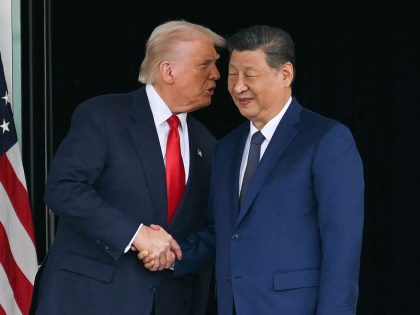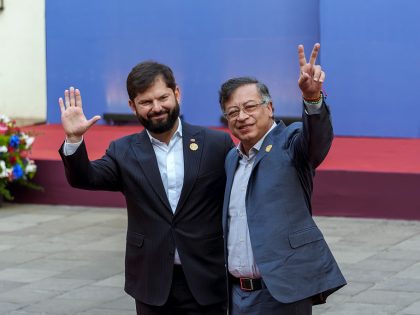
The Urbanization of the Chinese Working Class
China’s ambitious new urbanization plan comes with a set of contradictions the Communist Party won’t be able to control.

China’s ambitious new urbanization plan comes with a set of contradictions the Communist Party won’t be able to control.

Deng Xiaoping was one of the most important Communist leaders of the twentieth century. Celebrated by the West for his pro-market reforms, leftists should be more skeptical of his accomplishments.

During the Cold War, US officials saw Taiwan as an “unsinkable aircraft carrier” and supported Chiang Kai-Shek’s dictatorship. Modern-day Taiwan has developed a democratic culture that shouldn’t be subordinated to confrontation between Washington and Beijing.

Apologists for capitalism like to point to its historically progressive aspects, like its supposed use of “free labor” rather than older forms of labor compulsion. But throughout its history, as the system has conquered new territories for capital accumulation, it has embraced and depended on the most coercive forms of “premodern” production relations.

Joe Biden signed a record-breaking defense budget even as his domestic agenda is languishing. We’re getting all of the Pentagon spending and anti-China saber-rattling — and none of the supposedly transformative social programs.

Few economists have had a greater impact on the way we talk about global trade and China’s role in the world economy than Michael Pettis. He spoke to Jacobin about Donald Trump’s tariffs and why inequality is at the heart of the trade war.

Let’s assume, for argument’s sake, that the recently shot-down Chinese balloon was indeed spying. The US doesn’t like other countries snooping on them — something the US is constantly doing all over the planet.

US lawmakers say the alliance’s movement into Asia is “inevitable.” It’s actually a completely avoidable, completely bad idea.

The world as we know it is a product of globalization — and this era of globalization might be coming to a close.

We’ve heard for decades that socialism has a body count. But how does it compare to capitalism? Mike Davis discusses Stalin, Mao, and the staggering holocausts of capitalism’s nineteenth-century heyday.

From the struggle against Japanese rule in Korea to his work with China’s revolutionaries, Kim San lived a life committed to socialism and the struggle against imperialism. He deserves to be remembered today.

The new national security laws that Beijing has imposed on Hong Kong criminalize dissent — and they could make it harder for workers in mainland China to organize, too.

With US hegemony in decline, China and the European Union are each vying to impose their own leadership over the next wave of digitalization. Donald Trump's talk of "America First" expressed this rivalry in especially crude terms — but even after his departure, the contest among the main world powers is only intensifying.

A focus on GDP and national accounts gives a misleading picture of US economic power. In the age of globalization, production can be based in countries like China while most of the profits flow back to American firms, reinforcing US economic hegemony.

Responses to the expansion of BRICS ping-ponged from dismissal to fearmongering. But there’s not much reason to fear for the US-led world order quite yet — and we shouldn’t fear the multipolar one BRICS wants to build.

Faced with China’s rise, Western states are turning from free trade dogmas to active industrial policies. This turn may offer opportunities for labor — but as the electric auto industry shows, it is also producing a harmful logic of national rivalries.

Donald Trump’s failure to enlist international support for his war on the Chinese company Huawei shows the weakening of US hegemony. Coercion won’t be enough for Washington to get its way.

One of the results of the Pink Tide, the wave of left-wing governments that swept Latin America in the 2000s, was to strengthen ties with China and other Global South nations. Donald Trump rightly sees this emerging order as a challenge to US hegemony.

How a new religion’s pro-Trump rag became one of the world’s fastest-growing newspapers.

Washington’s push to rebuild Japan’s military, disbanded after World War II, is incredibly dangerous. Not only would remilitarization stoke conflict in the region, it would also embolden the growing Japanese far right.